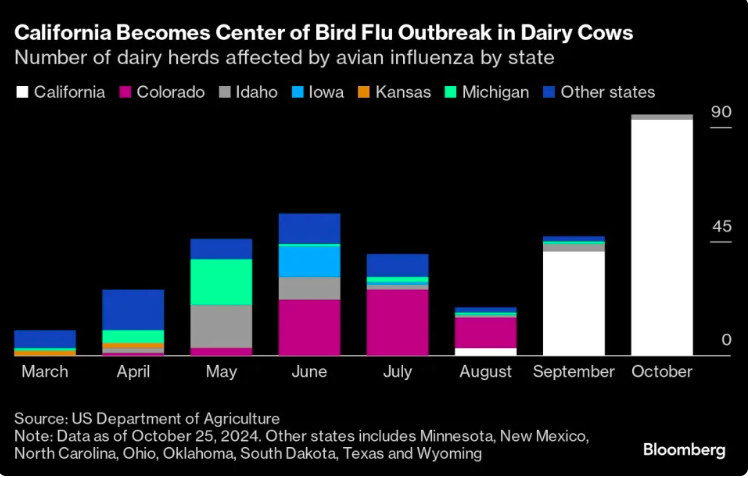Health
The Cure for Anemia: Is It Possible?

The Cure for Anemia: Is It Possible?
Anemia is a condition that affects millions of people worldwide. It occurs when your body lacks enough healthy red blood cells to carry adequate oxygen to your tissues. This can lead to fatigue, weakness, and other symptoms that can impact your daily life.
Many individuals wonder if anemia can be cured completely. In this article, we will explore the possibilities and provide you with valuable insights into managing this condition.
Understanding Anemia
Before we delve into the potential for a cure, let’s first understand the different types of anemia and their causes. Anemia can be caused by various factors, including:
- Iron deficiency
- Vitamin B12 deficiency
- Folic acid deficiency
- Chronic diseases
- Genetic disorders
Each type of anemia requires a different approach to treatment. While some forms of anemia can be managed and controlled effectively, others may require ongoing treatment and lifestyle adjustments.
Managing Anemia
While a complete cure for anemia may not be possible in all cases, there are effective ways to manage and alleviate the symptoms. Treatment options may include:
- Dietary changes: Consuming foods rich in iron, vitamin B12, and folic acid can help improve red blood cell production.
- Supplements: In some cases, supplements may be prescribed to address specific nutrient deficiencies.
- Medications: Certain medications can stimulate the production of red blood cells or treat underlying causes of anemia.
- Medical procedures: In severe cases, blood transfusions or bone marrow transplants may be necessary.
It is important to consult with a healthcare professional to determine the most appropriate treatment plan for your specific type of anemia.
Living with Anemia
While managing anemia is crucial, it is equally important to adopt a healthy lifestyle to support your overall well-being. Here are some tips to help you live well with anemia:
- Follow a balanced diet: Incorporate a variety of nutrient-rich foods into your meals, including lean meats, leafy greens, and whole grains.
- Stay hydrated: Drinking an adequate amount of water can help prevent dehydration, which can worsen anemia symptoms.
- Manage stress: Stress can exacerbate symptoms, so finding healthy ways to cope, such as practicing relaxation techniques or engaging in enjoyable activities, is essential.
- Exercise regularly: Engaging in moderate exercise, such as walking or swimming, can help improve circulation and overall energy levels.
- Get regular check-ups: Monitoring your blood levels and staying in touch with your healthcare provider is crucial for managing anemia effectively.
Frequently Asked Questions
1. Can anemia be cured naturally?
While certain dietary and lifestyle changes can help manage anemia, a complete cure solely through natural remedies may not be possible in all cases. It is essential to seek medical advice for appropriate treatment options.
2. Is anemia a lifelong condition?
Anemia can be a chronic condition for some individuals, requiring ongoing management and treatment. However, the severity and duration of anemia can vary depending on the underlying cause and individual factors.
3. Can anemia be hereditary?
Some forms of anemia, such as sickle cell anemia and thalassemia, have a genetic component and can be inherited from parents. Genetic counseling and testing can help determine the risk of passing on these conditions.
4. Can anemia lead to other health complications?
Untreated or severe anemia can potentially lead to complications such as heart problems, pregnancy complications, and delayed growth and development in children. Seeking appropriate treatment and management is crucial to prevent these complications.
5. How long does it take to see improvements in anemia symptoms?
The timeline for improvement in anemia symptoms can vary depending on the underlying cause, treatment plan, and individual response. It is important to follow the prescribed treatment and have regular check-ups to monitor progress.
6. Can anemia affect mental health?
Anemia can contribute to feelings of fatigue, weakness, and difficulty concentrating, which can impact mental well-being. Seeking support from healthcare professionals and practicing self-care can help address these challenges.
7. Can anemia be prevented?
While some forms of anemia, such as those caused by genetic factors, may not be preventable, others can be prevented or minimized through a healthy lifestyle, balanced diet, and regular medical check-ups.
Conclusion
While a complete cure for anemia may not be possible for all individuals, effective management and lifestyle adjustments can significantly improve the quality of life for those affected. By following a balanced diet, seeking appropriate medical treatment, and adopting a healthy lifestyle, individuals with anemia can experience relief from symptoms and lead fulfilling lives. Remember, it is important to consult with a healthcare professional for personalized advice and guidance.
Health
Understanding Menstrual Allergy: What You Need to Know

Understanding Menstrual Allergy: What You Need to Know
REFERENCE:
https://www.healthwellnessjournal.com/menstrual-allergy-guide
Health
California’s Bird Flu Crisis in Cattle: Understanding the Threat to Farming and Public Health
Health
Prenatal Cannabis Use: How It Impacts Child Development, Aggression, and Cognitive Skills

Prenatal Cannabis Use: How It Impacts Child Development, Aggression, and Cognitive Skills
Cannabis use during pregnancy has garnered significant attention in recent years due to its potential impact on child development.
With growing research and anecdotal claims surfacing, many wonder whether cannabis might affect a child’s neurodevelopment, particularly in areas such as cognitive function, behavioral tendencies, and social adaptability.
As prenatal cannabis exposure becomes increasingly examined, understanding its influence on childhood aggression and cognitive deficits has become crucial.
Here, we delve into the latest research on prenatal cannabis use and its implications for child development, highlighting key takeaways for parents and healthcare providers alike.
The Rise in Prenatal Cannabis Use
In recent years, cannabis legalization in various states and countries has led to a significant increase in use, even among pregnant women.
While some mothers-to-be use it to alleviate nausea or reduce anxiety, the potential risks to the developing fetus are often understated or misunderstood.
Studies suggest that cannabis use during pregnancy may disrupt fetal neurodevelopment, which can have long-lasting effects on a child’s behavior and cognitive abilities.
How Cannabis Affects Fetal Brain Development
During pregnancy, a baby’s brain undergoes rapid and complex development. Introducing cannabis, particularly the active compound THC (tetrahydrocannabinol), into a pregnant body can interfere with this process.
THC can cross the placenta, reaching the fetal brain and binding to cannabinoid receptors.
These receptors are crucial for normal brain development, affecting neuron growth, brain structure, and the overall wiring of neural connections.
The Role of Cannabinoid Receptors in Neurodevelopment
Cannabinoid receptors, part of the endocannabinoid system, play a pivotal role in prenatal brain development.
The interference caused by external cannabinoids like THC can disrupt normal brain function, potentially leading to cognitive and behavioral issues in childhood and beyond.
Research shows that children exposed to cannabis in utero may have lower scores in areas of memory, attention, and decision-making—skills that are essential for cognitive development and emotional regulation.
Studies on Cannabis and Childhood Aggression
One of the most concerning findings in recent research is the potential link between prenatal cannabis exposure and increased aggression in children.
Children exposed to cannabis during gestation may be more prone to aggression and other behavioral issues as they grow. Such behaviors may stem from altered neurotransmitter function and disrupted brain connections caused by exposure to THC.
Potential Behavioral Outcomes
Cannabis use in pregnancy has been associated with a range of behavioral concerns in young children.
These may include:
- Increased Aggressiveness: Children may exhibit more aggressive behaviors, which can hinder social interactions and pose challenges in school and other social environments.
- Attention Deficit Issues: Prenatal cannabis exposure has also been linked to attention-deficit disorders, making it harder for children to concentrate or complete tasks.
- Impulsivity and Hyperactivity: Children may show higher levels of impulsivity, leading to difficulties in controlling their behavior in structured settings.
Cognitive Deficits Associated with Prenatal Cannabis Use
The cognitive impacts of prenatal cannabis exposure often manifest in deficits related to memory, executive function, and problem-solving skills.
In many cases, these deficits become evident as children grow and face increasingly complex cognitive tasks at school and in social situations.
Memory and Learning Impairments
Children exposed to cannabis during pregnancy may have difficulties in memory retention and recall. Memory is a fundamental skill that impacts learning, decision-making, and emotional regulation.
When prenatal cannabis exposure disrupts memory development, children may struggle academically and face challenges in forming and maintaining relationships.
Executive Function Challenges
Executive functions, including decision-making, planning, and problem-solving, are essential for daily life.
Cannabis exposure in utero has been linked to impairments in these areas, making it harder for affected children to succeed in academic and social settings.
These challenges can persist into adolescence and adulthood, potentially impacting career choices, interpersonal relationships, and overall quality of life.
Impact on Social Development
Children who experience neurodevelopmental impacts from prenatal cannabis exposure may struggle in social situations.
Aggression, impulsivity, and attention deficits can hinder their ability to interact positively with peers, teachers, and family members.
Additionally, the cognitive deficits associated with prenatal cannabis exposure may impair their ability to understand social cues, leading to misunderstandings and conflicts.
Long-Term Effects on Social Relationships
Research suggests that the effects of prenatal cannabis exposure on social behavior can extend into adolescence and beyond.
Children who exhibit aggressive behavior or struggle with attention-related issues may find it challenging to form close friendships or maintain healthy relationships.
In some cases, this can lead to feelings of isolation and low self-esteem, which may increase the risk of mental health issues later in life.
Gender Differences in Cannabis Exposure Outcomes
Interestingly, some studies indicate that the effects of prenatal cannabis exposure may differ between boys and girls.
Boys, for instance, may exhibit more noticeable signs of aggression and hyperactivity, while girls may experience cognitive challenges such as attention deficits.
Understanding these gender-specific differences can help healthcare providers tailor interventions and support strategies to meet each child’s unique needs.
Strategies for Pregnant Women Considering Cannabis Use
While cannabis might seem like a natural remedy for managing pregnancy symptoms, its potential impacts on fetal development suggest the need for caution. Pregnant women considering cannabis use should discuss it with their healthcare provider to understand the risks and explore safer alternatives.
Alternative Remedies for Pregnancy Symptoms
Many healthcare providers recommend alternative approaches to managing pregnancy symptoms, such as:
- Acupuncture or Acupressure: Helpful for managing nausea and anxiety.
- Mindfulness and Relaxation Techniques: These can aid in stress reduction and mood regulation.
- Physical Activity: Engaging in prenatal yoga or light exercises can help reduce stress and improve overall well-being.
Ongoing Research and Future Perspectives
Researchers are still uncovering the full spectrum of prenatal cannabis exposure’s effects on child development. As more data becomes available, guidelines may evolve to provide clearer recommendations for pregnant women.
Currently, the precautionary approach is widely endorsed by medical professionals due to the growing body of evidence suggesting that prenatal cannabis use can negatively impact child neurodevelopment.
The Importance of Parental Awareness and Support
Understanding the risks associated with prenatal cannabis use is vital for expecting parents and families. By becoming informed, parents can make healthier choices for themselves and their unborn children.
Additionally, recognizing the potential impacts on child development can help families seek early interventions if needed, supporting better developmental outcomes.
Conclusion
The evidence suggests that prenatal cannabis exposure may contribute to increased aggression, cognitive deficits, and social challenges in children.
As cannabis becomes more accessible, the importance of understanding its potential risks during pregnancy cannot be overstated.
Pregnant women should consult with their healthcare providers about alternative symptom management methods to minimize any potential risks to fetal brain development.
Through informed decision-making, expecting parents can better support the long-term health and development of their children.
Frequently Asked Questions (FAQs)
1. Can cannabis use during pregnancy cause lasting effects on a child’s brain?
Yes, research suggests that prenatal cannabis exposure may lead to long-term cognitive and behavioral challenges, including memory deficits and aggression.
2. Are there safe alternatives to cannabis for managing pregnancy symptoms?
Yes, many healthcare providers recommend alternatives such as acupuncture, mindfulness, and prenatal yoga, which can effectively manage symptoms without posing risks to fetal development.
3. Do all children exposed to cannabis during pregnancy experience cognitive or behavioral issues?
Not all children will exhibit these issues, as outcomes can vary based on factors like frequency of exposure, genetic predispositions, and environmental influences. However, studies show a higher likelihood of cognitive and behavioral challenges.
4. Are there any differences in the impact of prenatal cannabis exposure between boys and girls?
Yes, research suggests gender-specific differences; boys may show more aggression, while girls may experience greater cognitive deficits, such as attention challenges.
5. What are some potential long-term social impacts for children exposed to cannabis in utero?
Children exposed to cannabis during pregnancy may face difficulties with social interactions and relationship-building due to aggression or attention deficits, potentially impacting self-esteem and mental health into adulthood.
References:
https://neurosciencenews.com/cud-pregnancy-aggression-neurodevelopment-27950/.
-

 Trending Stories1 year ago
Trending Stories1 year agoCDC: 1 in 4 Americans Still COVID-Free by End of 2022
-

 Health5 years ago
Health5 years agoMeghan Trainor Shares Motivational New Song ‘Blink’
-

 Health6 months ago
Health6 months agoHow Do Pawpaw Seeds Support Cardiovascular Health?
-

 Health2 years ago
Health2 years agoHow Long Does Monkey Pox Last Before It Surfaces in the Body?
-

 Health3 years ago
Health3 years agoWhat Causes Swollen Body? Understanding Edema and its Triggers
-

 Health3 years ago
Health3 years agoNutrition and the Importance of a Fitness Program – 3 Things to Know
-

 Health3 years ago
Health3 years ago5 Weird Reasons Why Pimples Disappear After Marriage
-

 Health2 years ago
Health2 years agoHealth Benefits Of Pawpaw Seed? 7 Things To Know












